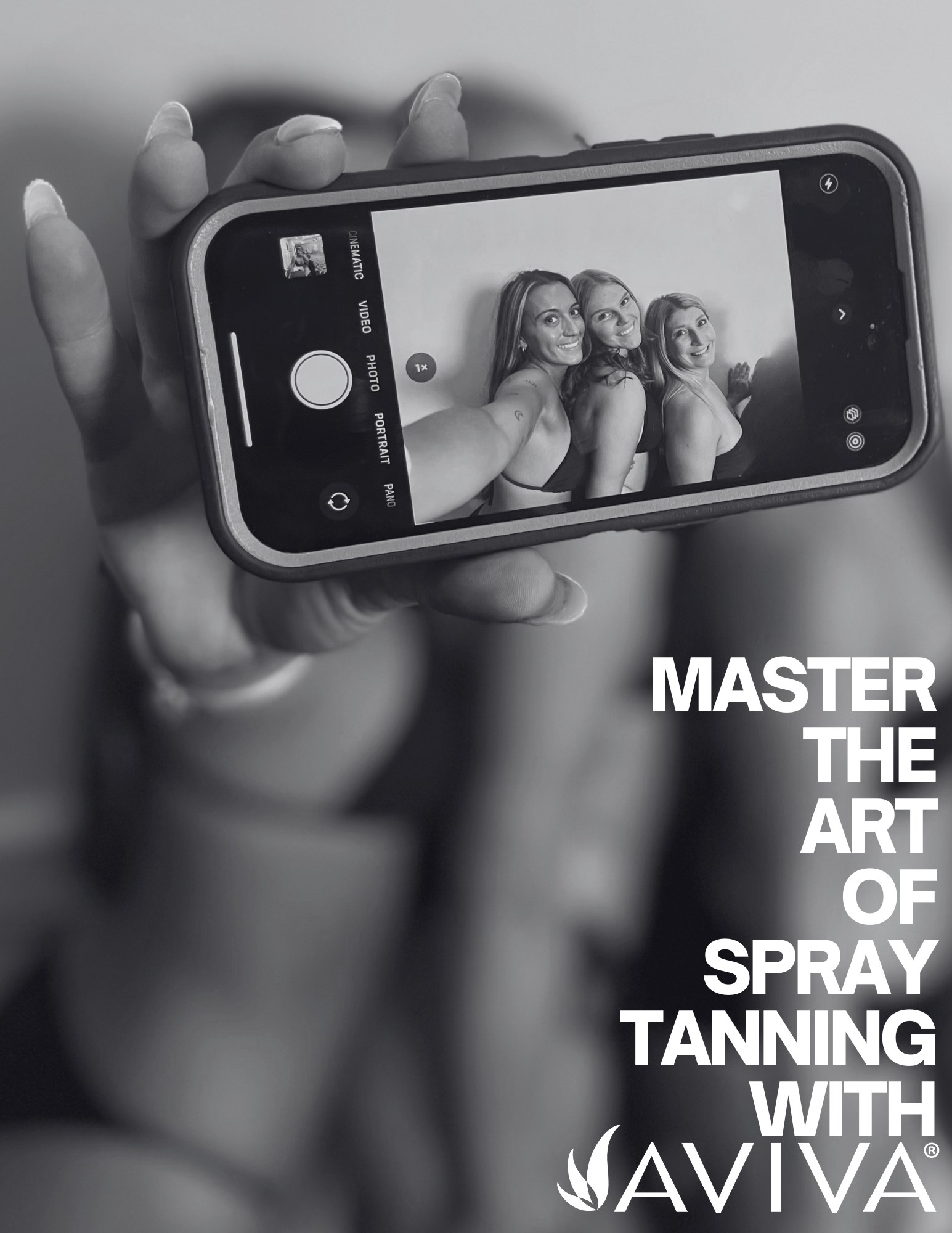DHA, or Dihydroxyacetone (that’s a mouthful!), is a substance refined from beets and sugar cane into a fine, white powder. This powder is then mixed into a super-secret formula!
Seriously though, this formula is designed to counteract the DHA’s natural drying effects while also controlling how much it tans your skin. Think of it this way: if I made a mixture of DHA and water and you dunked a finger into it, that finger would pretty much instantly become orange. While funny, that doesn’t make for a natural-looking tan: so the challenge is to find that perfect balance of color while also making a solution that produces a natural, even, clean tan.
Is DHA safe?
Yes, DHA has been placed on the United States Food and Drug Administration’s permanent list of acceptable cosmetic ingredients.
How does DHA tan my skin?
DHA is not a dye or a spray on paint; it is your skin’s natural reaction.
Similarly to how you tan in the sun, DHA reacts with the amino acids in the top layer of your skin to cause a chemical reaction; this causes your skin to darken, or become tan, and gives you that color you love.
I like to think of it this way: DHA tricks your skin into thinking it’s getting a tan from the sun without exposing it to any ultraviolet rays.
Will DHA dry out my skin?
Yes, DHA will dry out your skin if not treated with a moisturizer. I would never do this, but if I poured a mixture of DHA and water (with no moisturizer included) over myself, my skin would begin to pucker and tighten like I was being wrapped in plastic wrap.
To counteract the drying effects of the DHA, some companies use oil-based moisturizers, but these only make your skin feel tacky (like you were spray painted instead of spray tanned) and cause your tan to fade in ugly patches.
Better companies use water-based moisturizers to ensure that your skin feels just the same as it did before your spray tan, if not more moisturized. Also, a water-based moisturizer doesn’t ruin your tan, but leaves it looking healthy, even, and more natural.
What does DHA smell like?
As it is derived from refined sugar cane and sugar beets, DHA (unsurprisingly) smells sweet. When it is treated and prepared for use in a spray tanning formula, DHA will still keep a fresh, clean, natural smell.
DHA only smells bad if it is treated incorrectly.
Poorly developed spray tan solutions will generally use fragrance oils to cover up the reek of their bad science, but a cover up can only hide so much: underneath a scent that you didn’t want to smell like anyways, there will still end up smelling like French Fries.
A carefully engineered spray tan solution avoids this problem altogether. A good solution smells like water; a far sight better than French Fries, that’s for sure.
Is DHA that stuff in baby food?
Nope, guess again. That DHA is Docosahexaenoic acid (oh joy, another tongue twister), and can be found in mother’s milk or fish oil.
Rest assured: a professional, dependable manufacturer will never make this mistake; there is a mountain of safety documents, certificates, and assessments that should be completed even before the first step of formulating a product is taken. These safety measures are to prevent simple mistakes like this from happening.
You should look for a manufacturer who has conducted the work in their own lab, and of course who also operates their own production facility. After all, who would you rather buy from:
Some guy who buys his stuff from a producer without really knowing anything about the ingredients being used and yet still passes it off as the best on the market
Or:
The chemist who created the formula, knows the process by heart, and developed his solution with the best possible ingredients.


